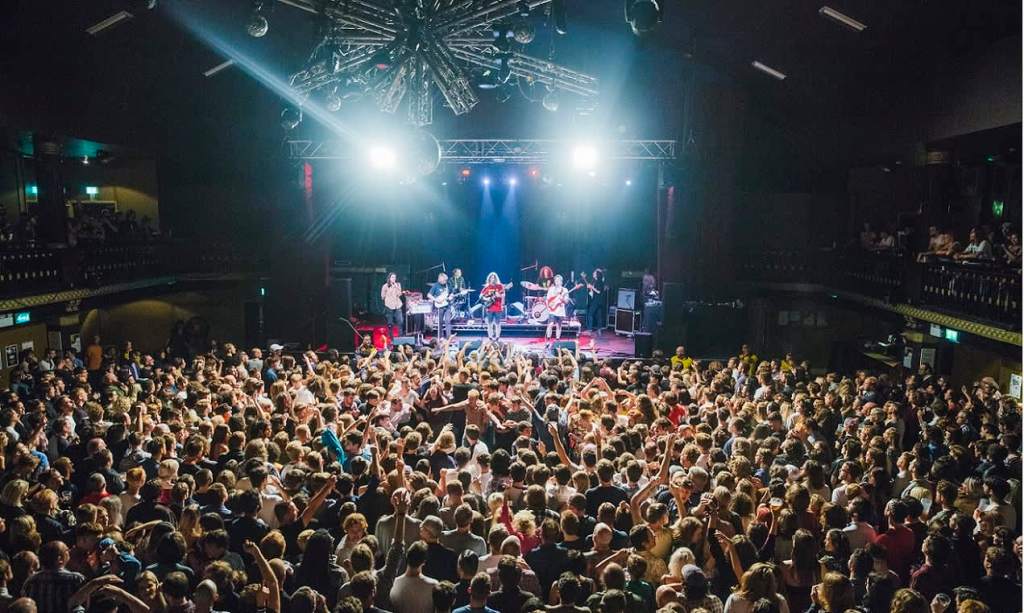Australia’s music industry has been embattled for some time with cuts to arts funding, venue closures, and tighter licensing restrictions seeing a huge die-off of socially important and culturally enriching spaces. And that was before COVID came along and blew a massive hole in the side of the already leaky ship of our cultural future.
Now, a new study from RMIT University has revealed the extent of the damage COVID-19 has wreaked upon the music industry in the state of Victoria. With survey data complied from nearly 300 musicians, venue owners, and other industry professionals, they were able to get a worrying snapshot of the picture on the ground:
58% of respondents indicated they are considering leaving the music industry.
80% said that their involvement in the industry would be different after COVID.
74% said they had lost income due to the pandemic.
57% said they were worried about paying for basics like rent and food.
44% said they had lost all of their music-related work during the pandemic and the numbers of music industry professionals in full time employment dropped from 34% down to just 7%.
The Victorian Music Development Office (VMDO) and the Victorian Office for Women commissioned RMIT University to complete the study: Understanding Challenges to the Victorian Music Industry During COVID-19.
VMDO General Manager, Katie Stewart, explained that the research found that one crucial consequence created by the pandemic will be the likely significant loss of talent from the Victorian music sector.
“Throughout the pandemic many music workers found themselves doing unpaid work and also found it difficult to stay connected to industry peers,” said Stewart.
Doctor Catherine Strong from RMIT University explained that “The survey also highlights that the pandemic has exacerbated and continued some already-existing problems within the Victorian music industry, including income security, discrimination and elitism as well as issues linked to location and demographics.”
“However, the consequences of the pandemic also enhanced some positive aspects for the sector, including greater community-mindedness, innovation, creativity and a commitment to music-making,” said Strong.
Musicians Need Help
Some of the worst-hit in the pandemic have been those involved with our previously normal day-to-day entertainments like hospitality, art, and travel. Without places to play, musicians have been forced either online or into other avenues of work. Venues have closed due to lack of revenue and there isn’t a great deal of hope that many of these places will reopen when this crisis comes to an end.
When we finally return to normality, we’re going to want to dance, sing, and party like never before but without support, a lot of the places and people who provide experiences like that may just not exist any more.
In March last year, the Australian music sector was calling for a $750 million dollar rescue package to save the scene and preserve our music culture. However in June, the Prime Minister announced just $250 million would be shared amongst the entire creative industry.
At the time, Morrison was at pains to indicate it wouldn’t be just artists getting this money by saying; “this package is as much about supporting the tradies who build stage sets.” God forbid we give money to artists who produce things we enjoy.
Estimates show that, as of late October, more than 80% of the funding had not yet been allocated. Only $50 million had been given out and that was in one lump sum to Screen Australia to help finance film and television productions.
The Australian Live Music Business Council found in October 2020 that “only 17 percent of businesses in the [live music] sector will be able to benefit, due to tough eligibility criteria. Even then, the money may not flow until the end of the year”.
Victoria was in a much better position than the rest of the country prior to the pandemic. With Melbourne taking the crown as music capital, their scene has received strong government support and subsequently produced a non-stop march of incredible musical talent that have gone on to dominate charts across the globe. If Victoria is doing badly, you know it’s a whole lot worse for the rest of the domestic scene.
Ch-Ch-Ch-Changes
Survey respondents were also asked what they would like to see changed as the industry recovers and reopens. The industry indicated in order to improve the situation they would like to see improved working conditions including better pay and hours, improved access to benefits, and more job security.
They also want to change the culture of the industry to increase inclusion and address sexual, gendered, and racial discrimination that exists currently as well as shift the focus away from profit-driven motives.
In order to do so, respondents indicated that more external support from the government was needed.
Throughout the pandemic, the Victorian Government has provided close to $25M in dedicated support to the Victorian music industry. This has included funding to support artists and acts, music industry workers and organisations, events and live music
venues.
The deadline for the next round of the Victorian Music Works grants has been extended to 5pm Monday, 22 February 2021.







